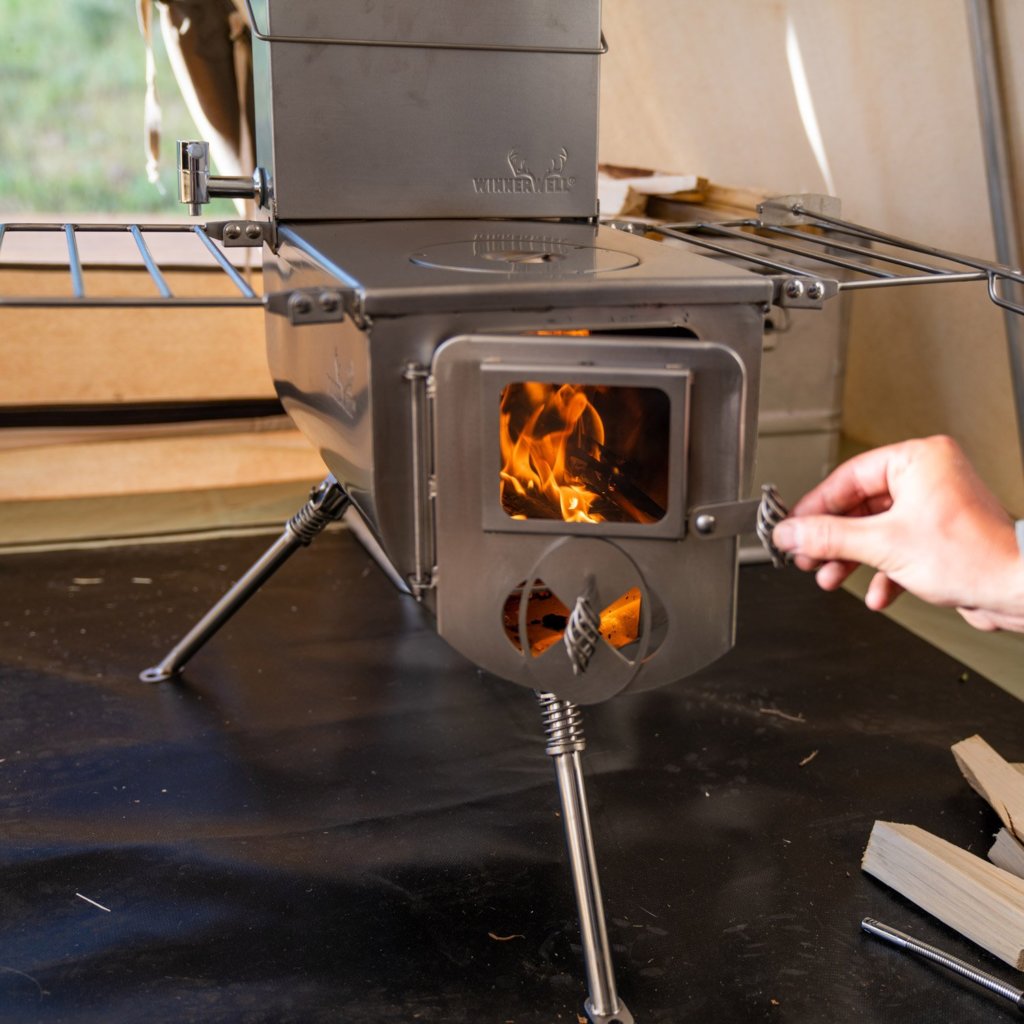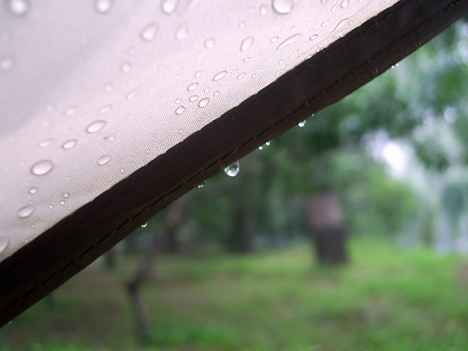How to Prevent Tent Condensation
Some people think that tent condensation happens to everyone. This line of thinking is typically from people using a synthetic material, versus canvas. The Cotton canvas used in Stout Tents is breathable, so condensation is less of an issue. We’re not saying that synthetic tents are bad, sometimes they’re necessary for backpackers and pack weight conscious campers. The trade-off in weight has to be made by making the move to synthetic materials. However, for properly caring for your canvas tent, it’s important to understand these differences. Follow these six steps to know how to prevent tent condensation.
What is Condensation?
Condensation is water vapor that forms when warm air collides with cold surfaces. In camping it can be caused by humidity, temperature fluctuations from day to night, or even human (or dog!) breath as you sleep at night. If you’re experiencing issues with moisture, seen or unseen, inside your tent, here are six tips to minimize it:
Pick the Right Tent
Cheaper bell tents use materials that mimic canvas. They are coated with a synthetic lining and will have a substantial amount of water droplets forming on the inside of the tent, and then dropping onto the people sleeping inside the tent! Gross!

Ventilation
The more breathability you have, the less condensation you will experience. If you have a Stout Tent with the Double-wall feature, make sure that during the day, and in good weather, you’re opening the windows, doors and sidewalls to let air flow through the tent. You can add a fan, or even an AC unit. We can sew an AC Jack in for you!
Tip: Don’t keep wet items like clothes inside your tent. Dry them outside on a camping clothes line, or in a stuff sack.
Site Selection
Don’t set up on saturated ground. If it’s wet or spongy, skip it. Cold air sinks into valleys, so choose a spot that’s higher up with a good breeze. Avoid wet grass and instead look for loamy forest duff, or nicely draining gravel/soil. Click here for more information.
Heat
Add a Winnerwell wood burning stove! It will dry out the air, and warm things up for you. While we’re big fans of the Mr. Buddy Heater, and we have hundreds of these in our rental inventory for our event clients, they are propane heaters. A Propane heater will off-gass a water vapor, which increases condensation inside of a tent that’s not well ventilated.

Don’t Cook Inside Your Tent
This is a tricky one! We love nothing more than having a nice little kettle going on top for tea or hot toddy on our stove (here are some or our favorite recipes). While water vapor from boiling water and for meal prep adds water to the air, a wood burning stove dries, and removes it! Balance is the key, and if you aren’t sure you can counteract the moisture level from cooking, do it outside!
Rain
If you don’t have a good breathable canvas tent, rain will make condensation a lot worse. You will want to carry a small towel to wipe down the inside of your tent for those days you can’t escape the wet weather.
Following these six steps will help prevent an excess of condensation. We know that sometimes it’s unavoidable and that’s part of camping! In those cases, be sure you’re using best practices to keep your tent clean and dry during a long pitch and before packing it away.
If you have any questions, please reach out, we’re happy to help! Happy Camping!


